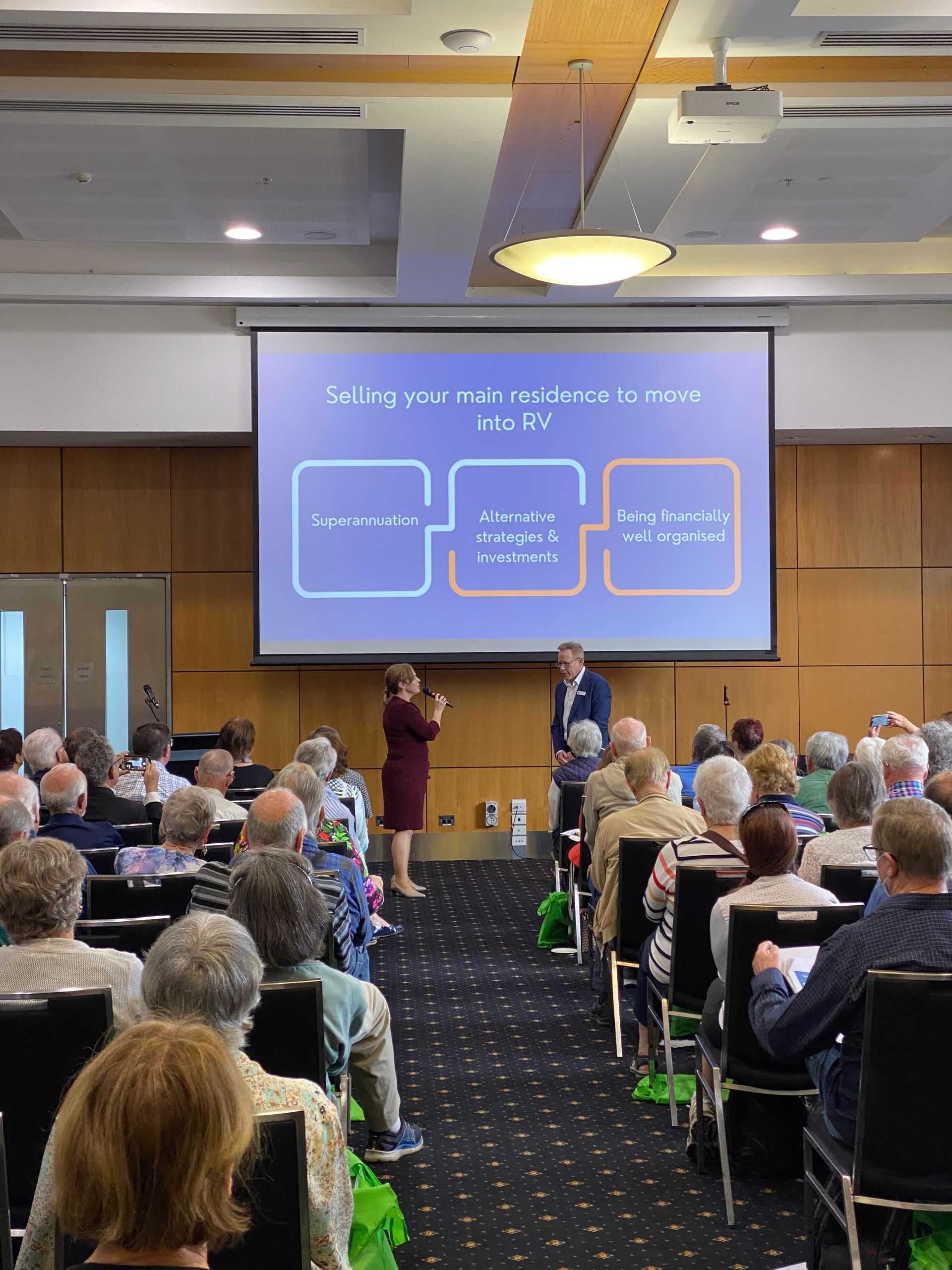Retirement villages and requirements for transparency of budgets
Case Summary - Pines Management (ACT) Pty Ltd v Eastick & ors Case Summary - Pines Management (ACT) Pty Ltd v Eastick & ors
On 18 December 2017, the ACT Civil & Administrative
Tribunal handed down its decision in relation to part of the dispute between
The Pines Retirement Village and its residents.
There were two issues in dispute. The first is the budget for the 2017/2018 financial year. The second is the amount of recurrent charges to be paid by the residence for that year. ACAT made a determination about the budget issue and is due to hear additional evidence regarding the recurrent charges issue in mid-January 2018.
There are some bigger lessons for operators to learn from The Pines decision. First and foremost, operators need to prepare their budgets based on evidence and provide any evidence the residents request to support the proposed expenditure. ACAT was extremely clear in its decision that residents are entitled to information, including copies of tax invoices or quotes.
The Pines decision took a requested budget the operator sought to be approved of nearly $189,000 and reduced it to just over $99,000. This is extremely significant given the previous year's budget was $155,673.
Key determinations made in this decision regarding particular line items were:
- An operator shouldn't expect to be able to fund its application to ACAT to get approval for the budget and increases in recurrent charges from those recurrent charges. In this case, ACAT was very clear that a situation where it disapproved over half the requested budget as the proceedings were certainly not wholly in the interest of the residents (a requirement under section 260 (2) of the Retirement Villages Act 2012 . If the operator had been wholly successful in having its proposed budget approved, the door might stay open to then seek the inclusion of the legal fees in the budget;
- Cost to fix defects in the construction of the retirement village are not to be paid for from recurrent charges as they don't
constitute capital maintenance;
- Where a retirement village is co-located with an aged-care facility, an operator should seek a breakdown from its insurer as to which components of the insurance premium relate to the village and which relate to the aged-care facility. Interestingly, where the insurer only provided a partial breakdown, ACAT utilised the breakdown provided and then apportioned the remaining premium and insurance brokerage fees on the basis of the comparative insured values of the retirement village and the aged-care facility. Similarly, where there's only one water meter that services both facilities, the costs for connection to the network/supply charges are shared;
- If the land on which the retirement village is located also includes a component of vacant land which is not reasonably used by the residents (regardless of what the operator may say about the ability to use that area), the operator shouldn't include gardening cost to maintain that vacant land nor the proportional component of general rates for that area of land in the retirement village budget;
- Separate line items for Repairs and Maintenance and Capital Maintenance cause some confusion, particularly where both are really Capital Maintenance under the legislation. Notwithstanding commenting to this effect, an allowance was made for Repairs & Maintenance separate to the Capital Maintenance line item. The amount allowed was $300 and appeared to be to cover the cost for replacing light bulbs.
- Residents need to understand that capital maintenance can include replacing part of an overall capital item. In this situation, ACAT was clear that replacing an alarm number pad and door station formed part of the course of the maintenance of the overall capital item – the alarm system;
- The amounts to be allocated in the Budget for a Village Manager may not reflect what is actually being paid for that Village Manager. In The Pines decision, Presidential Member McCarthy accepted that the Village, as a small Village, only required the Village Manager's services for a maximum of 4 hours per day. Insufficient evidence was provided regarding the appropriate rate to pay for the Village Manager. While ACAT clearly indicated that it was seeking appropriate evidence (such as a reference to an Award or details of what other Managers in other Villages were paid for their services), this evidence was not supplied. In the end ACAT determines an hourly rate, itself. Further, as no evidence was provided as to the requirement for all the amount of the superannuation guarantee to be paid, no allowance was made for it. This does not mean that Residents should take the view that superannuation guarantee requirements may be disregarded and are not payable from Recurrent Charges. Instead, it is a big warning sign to Operators that if they are seeking to have their Budget approved by ACAT, they need to provide appropriate evidence and references to the relevant legislation to substantiate the amount they are seeking to be included. Had the Operator provided that evidence then I am reasonably confident ACAT would have included an allowance for it in the Budget;
- ACAT will also look at the quality of the services being provided and whether there is a more cost effective/better means of those services being provided. In The Pines decision, one of the tasks been undertaken by the Village Manager was bookkeeping activities. Evidence from the auditor was that much time was spent by the auditor in correcting errors in the bookkeeping and that these errors were in part because of the Operator being unwilling to obtain a full version (rather than a training version) of the software and that the Village Manager was unskilled in these activities. Interestingly, while it appears the hours allocated for the Village Manager was reduced, it does not appear that a corresponding allowance was made for having a third party bookkeeper undertake those activities;
- Much was made about the lack of provision of evidence to support the proposed Budget. Another expense that was disallowed was an amount for a relief Village Manager while the permanent Village Manager was on leave. While my view is that a relief Village Manager is not an unreasonable expense to include in a Budget, it needs to be backed up with evidence as to who that Relief Village Manager is likely to be, what arrangements are made for that person to be available and evidence as to what they are paid or to be paid for providing those services;
- Contingencies – ACAT drew attention to the provisions in the Regulations which specify how much may be included in a Budget for Contingencies. Regulation 38 states where the Annual Budget is $200,000 or less, the maximum amount that may be allocated for contingencies is $1,000. Once the budget exceeds $200,000, the maximum amount for Contingencies is 0.5% of the total amount of the Annual Budget.
Finally, ACAT made it very clear how it interpreted the provisions of section 166 of the Retirement Villages Act 2012 . Section 166 states the operator commits an offence if it spends money received for recurrent charges and doesn't spend that money in accordance with the approved annual budget (or an approved annual budget as amended under section 167). While ACAT acknowledged that there is an exception in section 166 which states that the offence provision does not apply if the spending is a change in spending between items in the approved annual budget and does not reduce the level of services the retirement village provides and does not cause a total spending provided for by the approved annual budget to be exceeded. When items in a budget are allocated for particular things, for example cleaning, Presidential Member McCarthy expressed the view that it's difficult to see how the exemption in section 166 (3) could apply without reducing the level of cleaning services. In the Presidential Member's view, the nature of the budget providing "buckets" of money for different expenditure is such that there is unlikely to be many circumstances where the exemption would apply.
This decision brings home that an operator is not free to set whatever budget it likes. Residents have significant power to refuse to agree to a budget and to expect the operator to provide sufficient information regarding the anticipated expenditure, based on evidence, to enable the residents to make a fully informed decision. There are many good operators in Canberra who provide the appropriate levels of transparency to their residents. For those who do not, this decision should put the operator on notice that they need to start doing so. Importantly, just because an operator does not get their budget approved, does not mean that they can reduce the services provided to the residents. With the legislation requiring the operator to meet any shortfall in the budget against actual expenditure (with some limited exemptions), the outcome of The Pines decision is at those operators could find themselves forced into a position of having to provide the evidence, seeking a formal amendment to the budget or foot the bill themselves.
News




















